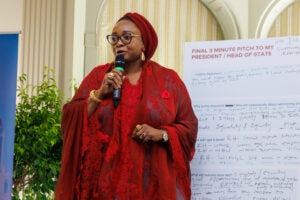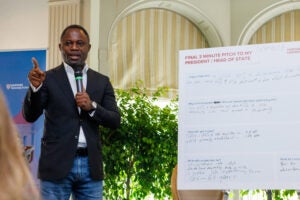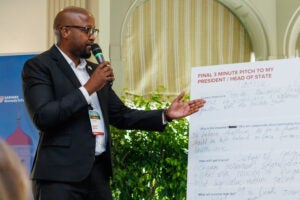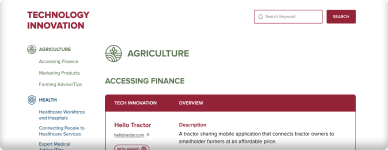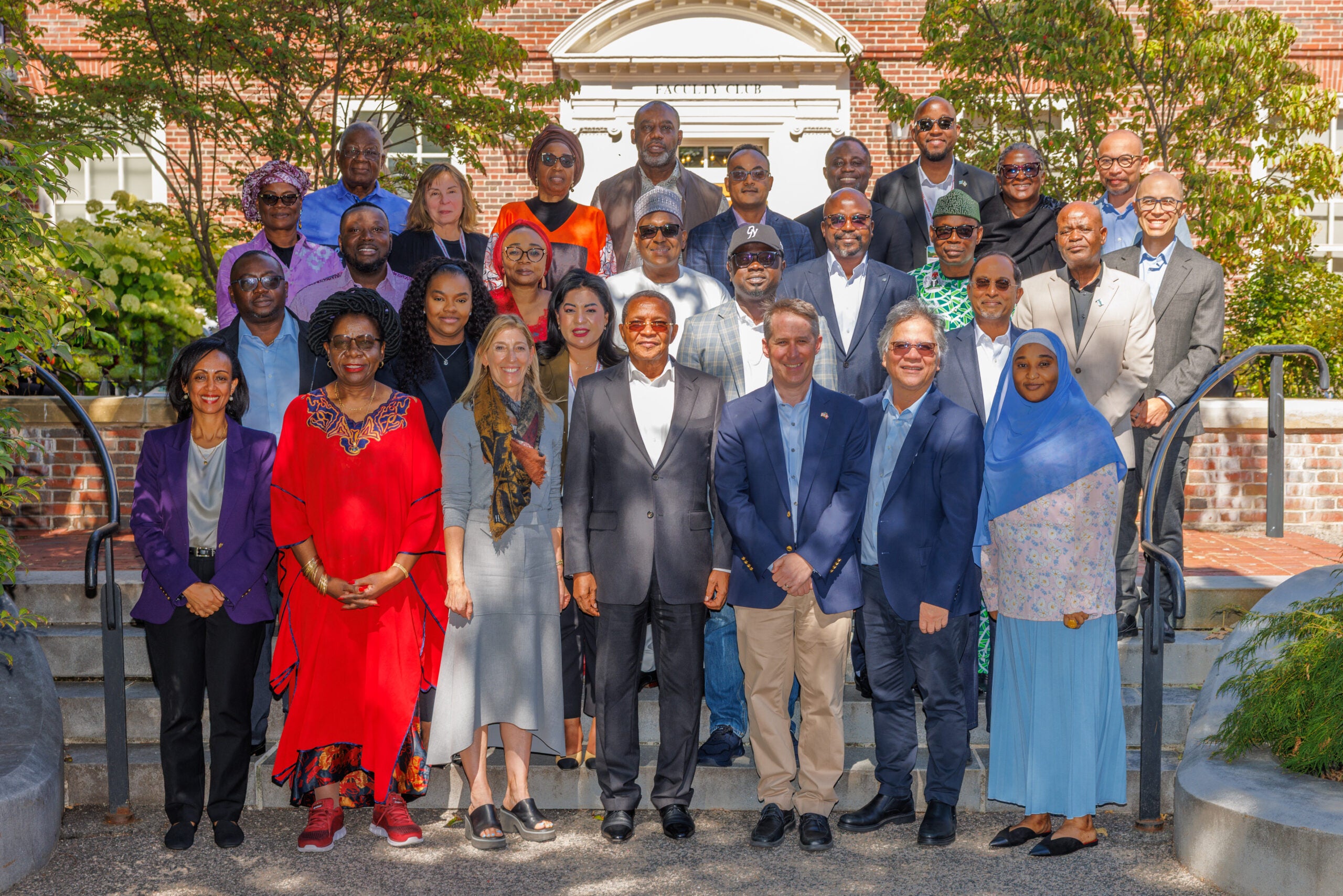We are living through challenging times. Around the world, countries are grappling with political uncertainty, economic instability, social unrest, climate risks, and rapid technological shifts, particularly those driven by artificial intelligence (AI). At the same time, foreign assistance to governments is shrinking, trust in institutions is increasingly fragile, and citizens, especially young people, are demanding real change and tangible results from their leaders, now.
So how do leaders drive meaningful transformation for their citizens in such turbulent times? This was the central theme for the Harvard Ministerial Leadership Program’s four-day Forum, where a group of Ministers, including Ministers of Health, Education, Public Works, Gender, Youth, Power, and Food Sovereignty, from across Africa and Asia, participated. The Forum, which took place from September 14 – 17, in Cambridge, Massachusetts, offered them an opportunity to step back from daily pressures, reflect on their priorities, define their legacy goals, and map how they will achieve their mandates and deliver on their citizens’ needs.
The immersive and highly practical curriculum of the Program is designed to help ministers sharpen their vision and their capacity for delivery. Over four days, participants refined their transformative legacy goals and key levers, reflected on making tough choices and trade-offs for long-term national impact, and translated these insights into actionable strategies for implementation. Sessions covered adaptive leadership, human capital and youth employment, political navigation, and resource mobilization, alongside practical skills such as building and leading core teams, cross-sector collaboration, stakeholder mapping, and accountability systems for effective delivery.
Ministers heard directly from distinguished faculty, experienced heads of state, and former ministers, engaging in case studies, simulations, and mentoring, and explored emerging areas like public-private partnerships and digital transformation/AI. All participating Ministers agreed that their positions, and this moment in history, call for more than managing day-to-day problems. They recognized that today’s global and national challenges are not just obstacles, but also turning points, where the choices they make can set their countries on successful paths.
At the center of this Forum were the citizens themselves. People want jobs, safety, infrastructure, food, good healthcare, and opportunities for their children. Leaders who listen closely to these needs and set clear, practical goals are more likely to succeed. The Program culminated in actionable plans that the Ministers took back home, ready to implement and deliver real change.
